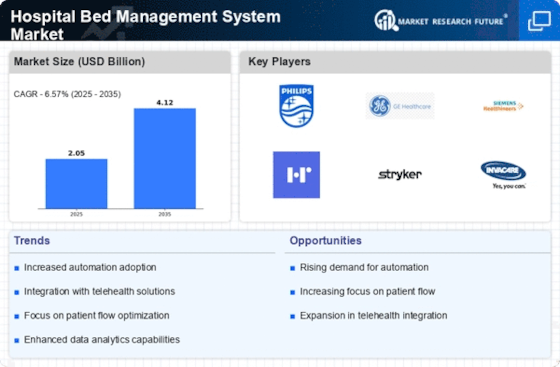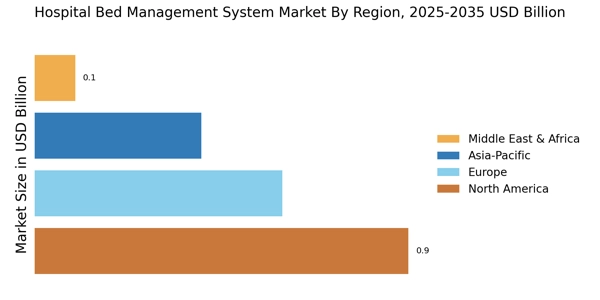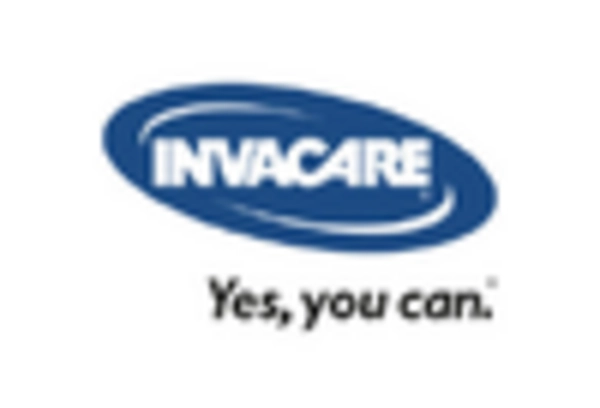Regulatory Compliance and Standards
The Hospital Bed Management System Market is significantly influenced by the need for compliance with healthcare regulations and standards. Governments and health authorities are increasingly mandating the adoption of technologies that ensure patient safety and improve care delivery. Compliance with these regulations often necessitates the implementation of sophisticated bed management systems that can track bed availability and patient flow. As a result, healthcare providers are investing in these systems to meet regulatory requirements, which is expected to drive market growth. The emphasis on compliance is likely to shape the future landscape of bed management solutions.
Technological Advancements in Healthcare
The Hospital Bed Management System Market is poised for growth due to rapid technological advancements in healthcare. Innovations such as artificial intelligence, machine learning, and the Internet of Things are transforming how hospitals manage their bed resources. These technologies enable real-time tracking of bed occupancy and patient status, facilitating better decision-making. The integration of such technologies is projected to enhance operational efficiency and patient satisfaction. Market analysts suggest that the adoption of these advanced technologies could lead to a 30% reduction in administrative workload, thereby allowing healthcare staff to focus more on patient care.
Rising Demand for Efficient Bed Management
The Hospital Bed Management System Market is experiencing a notable increase in demand for efficient bed management solutions. This demand is primarily driven by the need for hospitals to optimize bed utilization and reduce patient wait times. As healthcare facilities strive to enhance operational efficiency, the implementation of advanced bed management systems becomes crucial. According to recent data, hospitals that have adopted these systems report a 20% improvement in bed turnover rates. This trend indicates a growing recognition of the importance of effective bed management in improving patient care and operational performance.
Increasing Patient Volume and Complexity of Care
The Hospital Bed Management System Market is also driven by the increasing patient volume and the complexity of care required. As populations age and chronic diseases become more prevalent, hospitals are facing higher patient admissions. This surge in patient volume necessitates efficient bed management to ensure timely care delivery. Moreover, the complexity of care often requires specialized beds and resources, further complicating bed management. Hospitals are therefore investing in bed management systems to streamline operations and accommodate the growing patient needs. This trend indicates a shift towards more sophisticated management solutions in the healthcare sector.
Focus on Cost Reduction and Resource Optimization
The Hospital Bed Management System Market is significantly influenced by the ongoing focus on cost reduction and resource optimization within healthcare facilities. As healthcare costs continue to rise, hospitals are under pressure to maximize their resources, including bed availability. Implementing effective bed management systems allows hospitals to minimize operational costs by reducing unnecessary admissions and optimizing bed turnover. Recent studies indicate that hospitals utilizing these systems can achieve up to a 15% reduction in operational costs. This financial incentive is likely to drive further adoption of bed management solutions, as healthcare providers seek to enhance their financial sustainability.

















